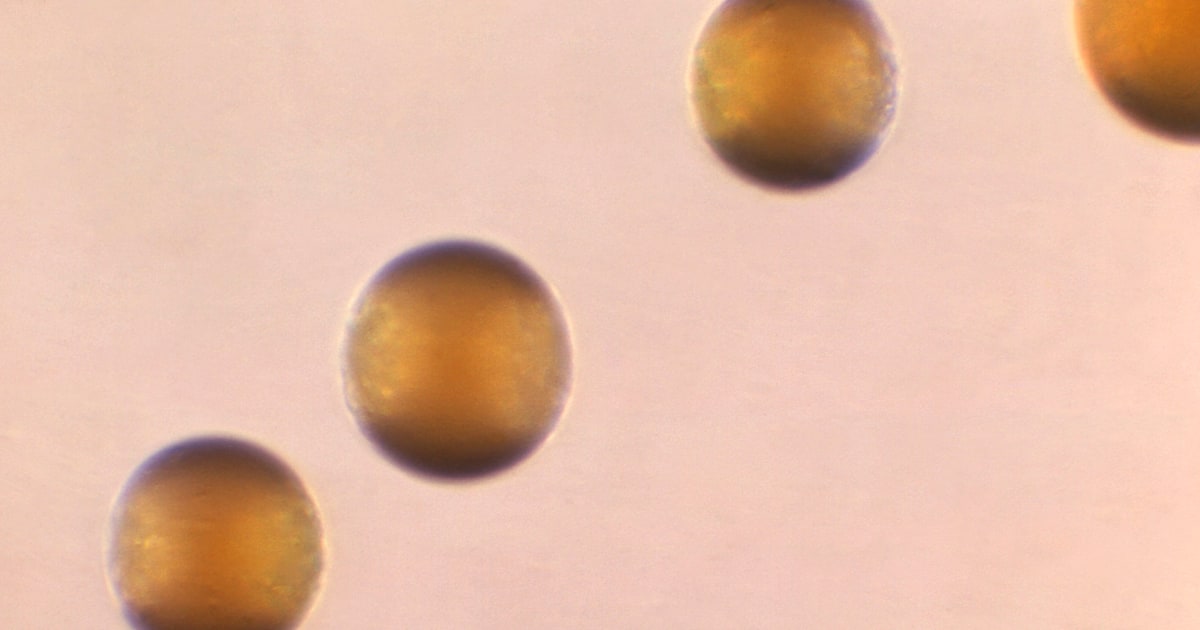- Click to share on Facebook (Opens in a new window)
- Click to share on Twitter (Opens in a new window)
- Click here to share on LinkedIn (Opens in a new window)
- Click to email a friend (Opens in a new window)
(CNN) - HIV / AIDS is one of the highest profile diseases of our time, but many of us still ignore key aspects of the disease, the way it works and how to live with it.
HIV has caused the death of 39 million people to date, but what makes it more dangerous are the misunderstandings and stigmas that surround it. We ask experts to discredit some of the most prevalent and harmful myths about HIV. This is what they said:
Myth: if you are infected with HIV you will realize it
It may be years before the symptoms of HIV appear, which means you could be a carrier of the disease for a long time without experiencing warning signs.
"In an average adult, it takes 8-10 years for an HIV-positive individual to show signs of being infected and sick, so it is almost impossible for people to know if they have HIV at the beginning," says Owen Ryan, executive director of the International AIDS Society.
- Controversy in Argentina by a pediatrician who said in Congress that the condom did not prevent AIDS
This means that it is extremely important that you undergo tests to see if you have the virus if you are a sexually active person. And of course, the correct use of the condom every time you have a sexual relationship greatly reduces the chance of being infected.
Myth: if you have HIV it is not necessary to start a drug therapy until you are very sick
WHO recommends that newly infected people start treatment from the beginning to protect their immune system. Treatment involves antiretroviral therapy (ART), which involves taking medications every day to suppress the virus in the body.
"There is a dramatic impact on the health and well-being of people throughout their lives, if they start HIV treatment immediately," explains Ryan.
“And it's not just for them, but for their families and partners too. People who receive HIV treatment, and who respond well to it, are 95% less likely to pass the virus to their partners. ”
Myth: we don't have to worry about HIV anymore
Just because we have made tremendous progress in the fight against HIV in recent decades, that doesn't mean we should be satisfied, Ryan argues.
"I think the biggest myth is that HIV is no longer a problem," he says. "What I find a lot in my work is that many people think that HIV is a problem 10 years ago."
“I don't think people know that there were 1.2 million deaths from AIDS in 2014. If more people knew, they would be impressed. Six hundred children a day are infected with HIV; That is a scandalous statistic. ”
“I think we have entered a period of apathy against which we really have to fight. So the myth that HIV is a thing of the past is not true at all. ”
Myth: if you are pregnant and you are HIV positive, your baby will always be infected
If a pregnant woman is HIV positive, the baby will not necessarily be infected. Even without receiving treatment, the possibility that the baby acquires the disease is about 25-33%, according to Professor Salim Abdool Karim, director of the Center for the AIDS Program of Research in South Africa (CAPRISA).
However, this risk can be significantly reduced with PrEP (Pre-exposure prophylaxis), which involves administering antiretroviral drugs to HIV-negative patients who are at risk of becoming infected.
"We can administer antiretroviral drugs in order to prevent mother-to-child transmission, so that the transmission rate is now below 1%," Karim explains.
Apart from PrEP, it is also possible to wash the sperm that will be used in an artificial insemination. HIV is transported in the fluid around the sperm (and not by the sperm itself), which means that it can be removed before the woman is inseminated. But although this may be a highly secure method, it is not free of cost.
"It is not done very often today," says Karim. "It is not an economic process because it involves many steps and also involves artificial insemination, something that is quite expensive."
Washing the sperm can greatly reduce the risk of getting the infection, but it does not fully guarantee it.
Myth: you can't get HIV if you get tattoos or get pierced on a part of the body
HIV can be transmitted through the blood, which means that you could become infected by sharing needles or by means of tools for tattoos or piercing that have not been properly sterilized between each use. The Centers for Disease Control and Prevention (CDC) says that the tools that cut the skin should be used once, and then should be discarded or sterilized.
"For places where tattoos or piercings are not regulated, or where they are performed in settings that are open to infections, then of course there is not going to be a risk there," says Ryan.
“It all comes down to a basic rule. Wherever you share something that has been in contact with blood and has not been cleaned, you are at risk of becoming infected with HIV. ”
Myth: HIV is a death sentence
There is no cure for HIV. There is also no vaccine for the disease. However, the quality of medications has developed significantly over time.
Now, people can reduce their viral load (the amount of HIV in their blood) to undetectable levels through ART. This means that the infection stops advancing rapidly, which protects the immune system from disease.
"Most patients, well above 95%, even up to 99% of patients who are receiving therapy should be able to lead a normal life without difficulties, and should not worry about mortality, as long as they continue their treatment properly." says Karim.
Myth: HIV is the same as AIDS
HIV is the virus that leads to AIDS. But, with proper treatment, people who are HIV positive can live their entire lives without getting AIDS, which is the last stage of the disease when the body's immune system is severely damaged. As explained by Myron Cohen, the director of the Institute for Global Health and Infectious Diseases at the University of North Carolina, having HIV is very different from having AIDS.
“The detection of the virus has almost very little to do with AIDS, as long as HIV replication stops. So HIV doesn't always convert, and it shouldn't, in AIDS. ”
“In the first days before we knew that HIV was the cause of this infection, and before we had treatments, the hospital was full of people with AIDS. Now, in our hospital with more than a thousand beds it is strange if a person with AIDS is admitted; It is something uncommon. ”
“We would prefer never to see AIDS again. HIV is the cause of AIDS, but it does not always have to become AIDS. ”
Myth: if you are diagnosed with HIV, you will live less than others
This myth comes from the idea that being diagnosed with HIV is a death sentence. However, with new developments in treatment technology, that does not have to be the case.
As Cohen explains, receiving the treatment at the beginning, and following it properly, "leads to better health, an absence of mostly signs or symptoms, and a completely normal life expectancy."
HIV treatment has improved dramatically over the years, and according to Cohen, a variety of new treatments are being tested and could be used in the near future.
“In 1985 there was nothing. In 1995 there was a pill. In 2005 we had gone from one pill to three pills that we now combine into a single pill a day. ”
“In 2015, we see two combined injectable agents that last for up to 8 to 12 weeks. So you only need four injections a year under some circumstances ... but these are experiments. It is good news that we are trying, but everything is an experiment.
Cohen adds the following: “The goal is the end of AIDS. I've been doing this for about 35 years; I started my own personal career when we became aware of HIV, I am still working and can see the final game. That is the same for many other researchers, not just for me. We are seeing the beginning of the end. ”
myths















